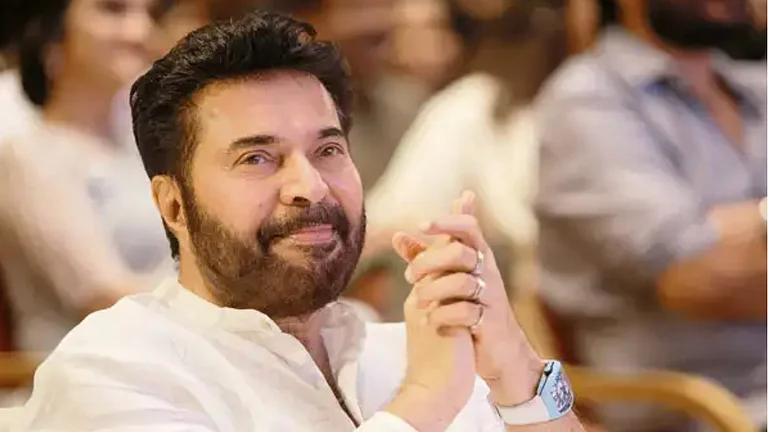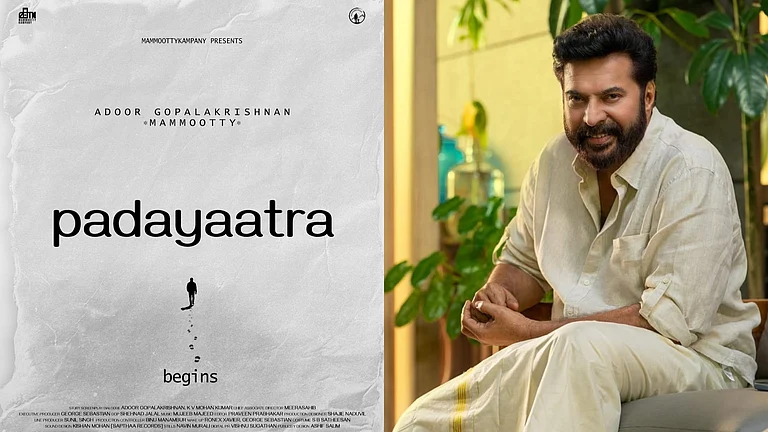
Veteran film maker said the financial assistance to women filmmakers and to those belonging to marginalised sections should be reduced and proper training should be provided to them;
Adoor’s statement is being denounced as casteist and feudal;
Adoor Gopalakrishnan says he stands by what he had said at the Kerala Film Conclave.
Veteran filmmaker Adoor Gopalakrishnan is in the eye of a storm since August 4 after his controversial statements at the Kerala Film Policy Conclave. Adoor called for the state government to reduce its special funding for Scheduled Caste and Scheduled Tribe (SC/ST) communities and women filmmakers as the projects could lead to corruption. He argued that a revamp was necessary to ensure the “quality” of films produced under the scheme.
Adoor Gopalakrishnan’s suggestion that debutant filmmakers from marginalised communities should first undergo proper training has drawn criticism, with many calling it insensitive and dismissive of the capabilities of women and Dalit filmmakers.
"As a conscientious professional, I thought that I should call attention to the authorities to the expert committee report already in the government’s possession, and the recommendations it had made should also be taken into account while finalising the new one I presented a realistic portrayal of the film industry, focusing on the government's scheme to provide financial assistance to women and members of the SC- ST communities," Adoor says to Outlook.
His remarks were made at a high-level meeting of Kerala’s prominent film personalities, policymakers, and representatives of industry bodies. The Kerala government hosted the two-day-long conclave to identify challenges faced by the Malayalam film industry and to incorporate suggestions into a new policy framework. The meeting was quickly highjacked when Adoor said the government’s project under which ₹1.5 crore is provided to aspiring women filmmakers and those from the SC/ST communities would pave the way for corruption. The intent behind the project is good, but they should be given at least three months of intensive training to make films, he had said, calling for a reduction in the amount to ₹50 lakh.
Singer and activist Pushpavathy Poyapadath openly protested during the session. Her intervention was widely shared on social media, sparking renewed debate over caste, privilege, and representation in Malayalam cinema.
Social activist Dinu Veyil filed a complaint against the filmmaker under the Scheduled Castes and Scheduled Tribes (Prevention of Atrocities) Act. However, reportedly Kerala Police sought out legal advice from a district public prosecutor and were told that the director’s remarks do not constitute a violation under the SC/ST Act.
Deputy Commissioner of Police (Law and Order), Thiruvananthapuram City, Nakul Rajendra Deshmukh told The News Minute that the legal review found “no legal ground” for proceeding with a case.
“Adoor’s remarks reek of caste bias. His assumption that marginalised communities are incapable reflects a deeply casteist and feudal mindset. It’s high time he shed this prejudice. Why does he believe that only women and marginalised groups require training?” says Dr. Biju, director of critically acclaimed films, speaking to Outlook. Biju adds, that “People like Adoor think that their training and patronage are a prerequisite to becoming a film-maker”
But Adoor maintains that while he commended the good intentions of the government, he also put forward some suggestions to improve the quality. He says that the Rs 1.5 crore allocated to debutant film-makers exceeds the required amount. “And excessive provision of public funding without any kind of guarantees or stipulations could lead to corruption. Three persons could benefit if the current grant is equally distributed among the three selected candidates.” He also reiterates his position that training must be given to the beneficiaries. “It is essential that they are given proper initiation through a three-month training course by experts. This would possibly ensure the making of better films and also an afterlife for them in the film industry.” Adoor adds.
Actor-director Joy Mathew and veteran director and lyricist Sreekumaran Thampi were among the film personalities who defended Adoor. Joy Mathew says Adoor's statement on giving training to new filmmakers should be interpreted correctly. “His suggestions were intended to improve the quality of the films. Recently, there had been many instances where Adoor was targeted for expressing his opinion,” he says.
Sruthi Saranyam, director of the film ‘B 32 Muthal B 44 Vare’, which was funded by the Kerala State Film Development Corporation (KSFDC), has strongly refuted Adoor’s allegations.
“KSFDC selects directors only after multiple rounds of rigorous evaluation. I was chosen after a four-stage, intensive selection process,” she tells Outlook, adding that the juries were chaired by renowned filmmakers and scriptwriters. “The entire process took nearly a year.”
While Sruthi agreed with Adoor that films can indeed be made on a budget of Rs 50 lakh, she emphasises that “it is the content and scale of the film that ultimately determines its cost.”
Despite the critical attention her film received, Sruthi revealed the challenges she continues to face in the industry. “I have approached several film producers and actors, but none have responded. Those who have lived with upper-caste, male privilege will never fully understand the struggles faced by women and marginalised communities,” she adds.
Critics argue that Adoor is oblivious to the process of selecting directors for the KSFDC fund. Sruthy Saranyam says that the process itself is also training since selection to the next round is made on the basis of the performance in the previous round.
“It is not about the question of the training or how much funding the government should allocate for promoting film-makers from marginalised communities, it is the attitude of Adoor that is problematic “, says film critic G P Ramachandran.
“Adoor’s arguments echo the flawed reasoning often used by anti-reservationists. It’s clear that people from marginalised backgrounds continue to struggle against the entrenched power structures that dominate the film industry,” Ramachandran says to Outlook, adding that, “Adoor seems unaware of this social reality and remains trapped in another world."
The Kerala State Film Development Corporation (KSFDC) launched its initiative to support women filmmakers and those from marginalised communities in 2020. As part of the programme, three crore is allocated for two women directors, and an additional three crore for two directors from the Scheduled Castes and the Scheduled Tribes.
The conclave was in response to the long-standing demand to reform the film industry. The Hema committee report had earlier revealed systemic issues like gender discrimination and the casting couch that plague the Malayalam film industry.




























